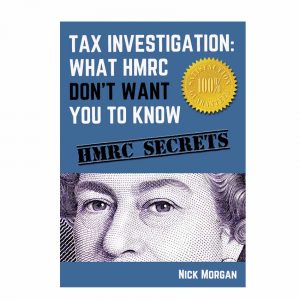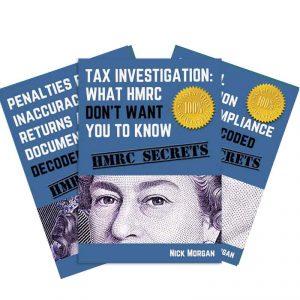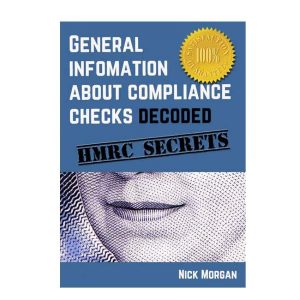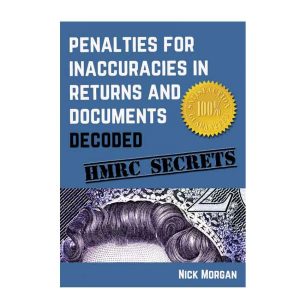ESC A19 – The Battle Goes On
HMRC’s dubious claims about P14s’ relevance for the purposes of extra-statutory concession A19
[Editor’s note: need to know what all the fuss is about? For background information and a handy flow-chart click here.]
By: Keith M Gordon 23 July 2014 Another ESCapade
Source: Taxation
KEY POINTS
• The main benefit of ESC A19 is to PAYE taxpayers.
• HMRC’s argument that the form P14 is not relevant information.
• A form p14 may be relevant depending on the year of claim.
• Apparent lack of evidence behind HMRC’s decision-making process.
• A departmental reluctance to provide information.
Many readers will be familiar with my concerns about HMRC’s change of practice in relation to extra-statutory concession A19 (ESC A19). The concession promises that HMRC will waive outstanding tax liabilities in situations where they had failed to act on information supplied to them in a reasonable time.
Although ESC A19 does not specifically apply only to taxpayers outside the scope of self assessment, its main value is with such taxpayers.
ESC A19 – an outline
ESC A19 typically applies to taxpayers outside the scope of self assessment, and only in cases where HMRC have been supplied with (but not properly used) information from either the taxpayer or the taxpayer’s employer.
It is clear, therefore, that its main beneficiaries will be taxpayers subject to PAYE, where notifications from the employer have not been properly actioned. HMRC have repeatedly said that they would honour the terms of ESC A19.
However, what had concerned me was HMRC’s increasing tendency to suggest that they would not consider ESC A19 to apply in cases where the information overlooked by them was contained on the taxpayer’s P14.
(The P14 is provided by the taxpayer’s employer as part of the annual P35 submission and shows the aggregate salary – and cash bonuses, etc – paid to the employee in the tax year and the tax deducted.)
My concerns
This struck me as rather dubious, given that the P14 is (almost invariably) the singularly most important document provided to HMRC about an individual taxpayer’s income and tax deductions over the course of a tax year, and that it was at the heart of the annual reconciliation process traditionally undertaken in tax offices at the end of each year.
Indeed, the terms of ESC A19 evidence the annual process in effect, by recognising that HMRC would be given at least a full tax year in which to alert taxpayers of possible underpayments.
What added to my concerns was the timing of HMRC’s revisionist approach to ESC A19s. As readers will know, HMRC stopped undertaking the annual reconciliation process in about 2005 or 2006 as a cost-saving exercise (in my view, a rather short-termist decision that has probably backfired).
Further, by 2010 HMRC had installed its new national PAYE computer system which started to notify taxpayers of historical under- and overpayments of tax that would previously have been identified in the course of the former annual reconciliation process.
In other words, just as the government was having to deal with the financial crisis and HMRC were doing their bit to maximise the tax take on behalf of the Exchequer, millions (and I mean millions) of taxpayers should have qualified for relief under ESC A19, at least as it was previously applied.
Status of P14s
My concerns escalated further because of the number of cases I have seen where HMRC have taken a very robust approach to claims under ESC A19, but backing down (eventually) if the taxpayer was sufficiently tenacious.
During those cases, I saw different views expressed by different HMRC officers about the status of P14s in the context of ESC A19.
In my own correspondence with HMRC, as reported in ESCapology, the department tried to tell me that P14s had never been considered a relevant source of information for the purposes of ESC A19.
In that article, I demonstrated why such a suggestion was clearly bonkers and that I considered it ironic that it should even have been made at a time when HMRC complain about alleged taxpayer dishonesty.
At the other end of the spectrum, one reader sent me a letter from HMRC making the point that P14s were in fact relevant documents for the purposes of ESC A19.
Another reader, however, sent me a different letter from HMRC stating that P14s had been “decommissioned” for ESC A19 purposes in 2005.
Meeting HMRC
It was this rather contradictory set of statements that led me to seek clarification from Homer and my eventual meeting with two of her staff in January.
At the meeting, I was accompanied by John Kimmer (then technical officer of the Association of Tax Technicians) who had also expressed deep concerns about HMRC’s conduct in relation to ESC A19.
My particular focus was the seemingly unjustified and intransigent approach taken in relation to P14s, at least until taxpayers persisted long enough to allow common sense to prevail.
John and I were told the following.
In 2005, a decision was taken to stop treating P14s as relevant sources of information for the purposes of ESC A19. HMRC acknowledged, however, that this change of approach was not widely publicised outside the department (a point which would make HMRC very vulnerable in any judicial review proceedings).
However, in 2012, a further decision was taken to reinstate P14s as relevant sources of information, but only prospectively (ie for the 2012/13 and subsequent tax years).
The cynical might suggest that P14s were demoted just for the period that annual reconciliations were not being undertaken and reinstated only after HMRC’s new computer was fully operational.
Seeking evidence
However, I was not going to reach such conclusions without evidence. I therefore made a formal request under the Freedom of Information Act 2000 (FOIA) for sight of any documentary evidence of the changes of practice back in 2005 and 2012 (or, given my suspicions, should I say “alleged changes of practice”?).
I also asked for copies of documentation concerning HMRC’s discussions with the Adjudicator’s Office in relation to the relevance of P14s and ESC A19.
Given HMRC’s tendency to ask taxpayers and third parties for information at the drop of a hat, one might expect HMRC to have co-operated with my request. Any such expectation, however, would have been misplaced.
HMRC’s initial response was late (ie outside the time period prescribed by the FOIA). When the response did eventually arrive, HMRC refused my request.
They did confirm, however, that they did hold the information I requested, but that it was so voluminous that it would require (on various assumptions specified under the FOIA) a single person to spend more than three-and-a-half working days locating and extracting it; such an assumption engages one of the exceptions in the legislation.
Given this time limit, I decided to focus my research on the documents evidencing the (alleged) changes of practice in 2005 and 2012 and drop my request for any evidence of discussions with the Adjudicator’s Office. I therefore renewed my request in part.
I was rather surprised by the result. HMRC now claim to have “carried out a reasonable search of the records [they] hold, [but] have been unable to locate the specific information”.
Leaving aside the fact that this contradicted the previous letter, HMRC are now stating that there is no contemporaneous document evidencing the alleged change of practice in 2005, nor the further alleged change in 2012.
In other words, this is not just a case of HMRC failing to communicate the change of practice to the outside world, there is not a shred of evidence to confirm that they had even told themselves of the change.
If practitioners cast their minds to their normal tussles with HMRC, these sometimes take the form that the taxpayer claims that he did something a few years back, the department asks for documentary evidence and the taxpayer says that there is no paperwork to prove what he is saying. In how many of those cases do HMRC then turn round and say, “Well, never mind, we thought we’d ask. I am sure that the taxpayer is telling the truth”?
Yet HMRC are now expecting us to believe that there was a change of practice in 2005, but that they cannot find a single document to evidence it. Given the fact that the civil service is renowned for documenting every major decision, I must admit to being somewhat incredulous.
The most that HMRC could say was that they have “located some internal HMRC communications from December 2012 to February 2013 which reference both decisions”.
However, HMRC are not prepared to let me have sight of these, citing further exemptions under the FOIA and suggesting that these override any public interest in holding the department to account.
(It should be stated that some exemptions under FOIA are so-called “qualified exemptions”, which means that a balancing exercise must be undertaken by reference to the public interest in favour of and against disclosure.)
Reading between the lines
For all the reasons mentioned above, I was always suspicious about the veracity of the suggestions that HMRC had changed, either formally or at all, its treatment of P14s in 2005.
The purpose of my FOIA request was to see whether my suspicions had any merit to them and, if not, to understand why HMRC would suddenly change their approach, but also fail to make the fact public. Regrettably, the two responses I have received reinforce my suspicions.
In particular, it seems that the late 2012/early 2013 correspondence does not confirm the existence of the 2005 and 2012 decisions regarding P14s; those communications merely “reference” them.
It would have been helpful (if HMRC were being duly candid) to let me understand who it was who made reference to those earlier decisions, in what context and what was said about them.
Even if there were aspects of those later communications that were properly non-disclosable under the Act, there was nothing that prevented HMRC redacting the documents.
Having been involved in a case involving an underwriting syndicate, I was rather amused by the fact that HMRC’s Solicitor’s Office went through each document to redact every mention of “Lloyd’s” in the belief that such redaction was necessary to protect the identity of a taxpayer.
The plot thickens
My doubts about the accuracy of HMRC’s explanations to me are reinforced when I consider what actually happens in practice when ESC A19 is invoked and taxpayers rely on their employers’ provision of P14s. It seems to me that HMRC repeatedly refuse to acknowledge that the P14s are relevant sources of information.
However, once the case is escalated to the right levels within HMRC, a different outcome is reached – even if the tax years in question fall between 2005 and 2012.
This year, I have dealt with one such case involving a claim for £30,000 where HMRC are now paying for my time as well as writing off the tax.
Had they accepted my client’s pleas which he had repeatedly made over the previous two years, they could have saved the country some much-needed money. A similar account was recorded in The Daily Telegraph on 14 June 2014 (“Jessica investigates”) and this is clearly not the first such case recorded in the national press.
Where now and next?
To summarise, HMRC are maintaining that P14s were demoted from being relevant for ESC A19 purposes in 2005, but reinstated with effect from 6 April 2012.
However, there is not a single contemporaneous document anywhere in HMRC to prove that this happened (despite HMRC previously claiming that my slightly more expansive information request was too onerous to comply with).
Further, HMRC are refusing to provide me with copies of the few documents that they do admit to having which refer to these earlier decisions. What’s more, HMRC seem reluctant to have these cases fully litigated. Methinks they have something to hide.
The next step for me is to seek an internal review of HMRC’s latest refusal letter and, if necessary, to pursue the matter to the Information Commissioner. However, if readers have any further information that may shed light on this matter, I would be glad to hear from them.
 Keith M Gordon MA(Oxon) FCA CTA (Fellow)
Keith M Gordon MA(Oxon) FCA CTA (Fellow)
Keith practised as a chartered accountant and chartered tax adviser before qualifying as a barrister. He joined Atlas Tax Chambers in 2006. He advises in all tax-related matters, extending to social security contributions and benefits. He also has a general chancery practice with a particular interest in probate disputes (including Inheritance Act claims) and partnership disputes. Keith also acts in professional negligence matters, for claimants and defendants alike.










I have exactly this problem, whereby HMRC are chasing me for alleged back tax dating back to 2009 totalling some £15,000 and are refusing to accept P14’s as relevant to the operation of ESC A19. My case was escalated to Lyn Homer by my MP due to delays, confusion, conflicting advice and bullying and harassment on the part of HMRC, but to date they have refused to back down, and I am now waiting (without much hope) for the adjudicators decision. I am retired and living on a pension, have gone through 18 months of hell, and the eventual payment of this amount under extreme duress from HMRC has had a life changing effect on me and my family. As a result of this I have no confidence in HMRC or ‘The System’ they operate under which seems to me to be entirely erratic and dependant on who in the media you may be lucky enough to get on your side. Anyone fancy giving me a helping hand?